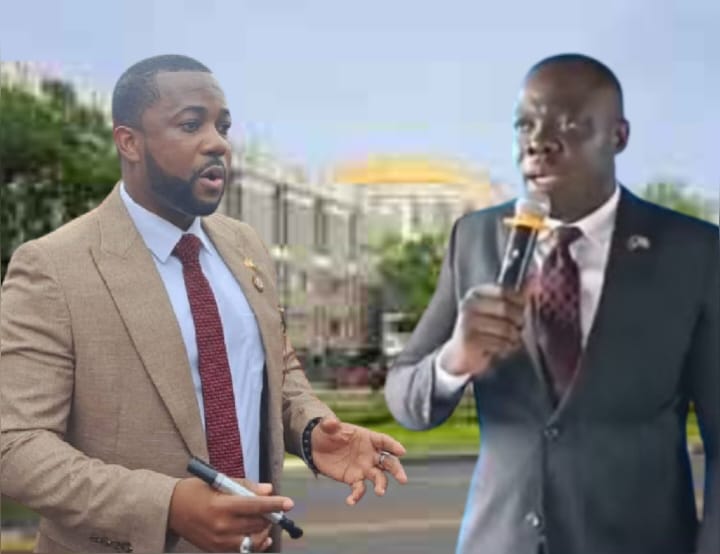The political landscape of Montserrado County, Liberia, has been shaken by a public feud between two opposition lawmakers, Representative Frank Saah Foko of District #9 and Representative Prince Aquency Toles of District #8. The dispute, initiated by Rep. Foko, centers on allegations of corruption and misappropriation of district funds against Rep. Toles. Foko, in a scathing online post, accused Toles of being “corrupt, inept, and dull,” challenging his claims regarding the amount of legislative funds disbursed and questioning the source of Toles’ purported wealth. This public clash has ignited a debate about accountability and transparency within Liberia’s political system, particularly among opposition figures.
The core of Rep. Foko’s accusations revolves around the allocation and use of legislative funds. He disputed Rep. Toles’ assertion that the allocated amount was $37,000, claiming instead that the National Budget designated $50,000 for each district. Foko further alleged that the government has withheld these funds from the districts, potentially diverting them to Unity Party (UP) lawmakers engaged in efforts to remove the Speaker of the House. This accusation raises concerns about political maneuvering and the potential misuse of public resources for partisan agendas. Foko framed this alleged withholding of funds as a “criminal” act, depriving constituents of essential resources.
Adding fuel to the fire, Rep. Foko questioned the source of Rep. Toles’ declared spending of over $325,000 in District #8, which Toles attributed to “private investments.” Foko expressed skepticism about the nature of these investments, highlighting the alleged failure of Toles’ printing press business, which, according to Foko, was shut down for tax evasion. The rapid accumulation of wealth by Rep. Toles, as alleged by Foko, formed the basis of his accusations of “conflict of interest and corruption.” Foko implied that Toles leveraged his political position to secure government contracts for his printing press, thereby stifling fair competition and potentially violating Liberia’s Code of Conduct, which prohibits public officials from using their office for personal gain.
Rep. Foko’s critique extended to Rep. Toles’ handling of the purported $37,000 in district funds. He argued that Rep. Toles’ direct involvement in project implementation violated established procedures, which mandate that such projects be managed by the Liberia Agency for Community Empowerment (LACE). This alleged circumvention of established protocols, according to Foko, raised further questions about potential “favoritism, partisanship, or outright corruption.” He highlighted the importance of adherence to legal frameworks and the need for transparency in the allocation and utilization of public funds.
Beyond financial matters, Rep. Foko also attacked Rep. Toles’ legislative performance, characterizing him as an “academically and professionally lazy politician” incapable of contributing meaningfully to legislative deliberations. This broadened the scope of the conflict beyond financial impropriety to include questions of competence and effectiveness in fulfilling legislative duties. Foko’s challenge to a public debate underscored his confidence in his position and his desire for a public forum to address these issues directly with Rep. Toles.
The public reaction to this political showdown has been diverse. Some constituents echoed Rep. Foko’s concerns, questioning Rep. Toles’ understanding of the National Budget and expressing disapproval of his alleged conduct. Others, however, defended Rep. Toles, criticizing Rep. Foko’s own performance and questioning his motives. This divergence in public opinion reflects the complex political landscape and the varying perspectives on the performance of elected officials. Despite the mixed reactions, the public confrontation between these two lawmakers has ignited a crucial conversation about accountability and transparency in Liberian politics, potentially setting the stage for increased scrutiny of elected officials and their handling of public resources.














